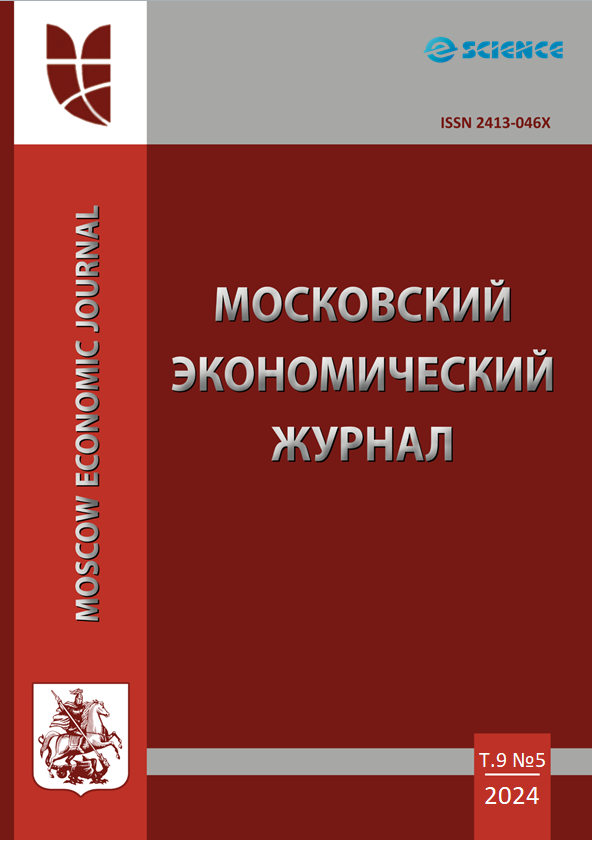UDC 332.13
The article examines the country's timber industry complex as an important link in the Russian economy, combining four sectors of the national economy, and at the same time the most affected in recent years as a result of the imposed sanctions and embargoes. The activities of city-forming enterprises in sixteen single-industry towns are at risk of stopping and freezing, which entails job losses and discontent among the population. In turn, the loss of international sales markets predetermines the need to restructure the current situation and increase domestic demand for timber industry products. Based on the conducted research, inter-industry clustering has been identified as the most optimal and effective tool aimed at supporting the complex and territories as a whole, attracting additional financial resources, import compensation, creating new competitive products, using domestic equipment, and introducing innovative high-tech solutions. The article highlights the main advantages of this approach and indicators of their manifestation. The structure of the cluster and its main concept are proposed - the implementation of a circular economy and deep integrated wood processing. Attention is paid to the entire chain of wood circulation, including its cultivation, harvesting, transportation, processing, adding additional added value, creating the final product and its sale, using production waste and producing environmentally friendly biofuels. Building productive interaction between business, authorities, research organizations, financial and credit institutions will give a positive synergistic effect and stabilize the economic condition of a number of industries. For the purpose of effective clustering, a set of practical measures to support territories has been defined, including six areas - personnel, scientific and technological progress, infrastructure, finance, business and urban environment. The presented series of recommendations is aimed at improving the microeconomic situation of a number of regions with the presence of forests.
circular economy, inter-industry clusters, wood, competitiveness, innovation, sanctions pressure, import substitution
1. Romanenko M.I. Razvitie lesopromyshlennogo kompleksa v usloviyah embargo i sankciy // Drukerovskiy vestnik. 2023. № 1 (51). S. 110-117.
2. Burdakova G.I., Bayankin A.S., Meshkov A.S. Issledovanie regional'nogo sprosa na produkciyu lesopromyshlennogo kompleksa v usloviyah vneshnih sankcionnyh davleniy // P-Economy. 2023. Tom 16. № 1. S. 98-113.
3. Dovtaev S.A., Dzodzieva F.N. Rol' regional'nyh mezhotraslevyh klasterov v ustoychivom razvitii territorii // Vestnik Akademii znaniy. 2021. № 43 (2). S. 107-110. URL: https://cyberleninka.ru/article/n/rol-regionalnyh-mezhotraslevyh-klasterov-v-ustoychivom-razvitii-territorii/viewer.
4. Kiseleva O.N., Vasina A.V., Sysoeva O.V. Analiz realizacii klasternogo podhoda v rossiyskoy ekonomike // Vestnik Samarskogo universiteta. Ekonomika i upravlenie. 2023. T. 14. № 2. S. 35-46.
5. Jednak S., Kragulj D., Parežanin M. Knowledge and industry clusters as drivers of economic development and competitiveness // Anali Ekonomskog fakulteta u Subotici. 2018. № 3 (39). 17 p.
6. Romanenko I.I., Romanenko M.I. Strategiya razvitiya regional'noy ekonomiki cherez klasternye obrazovaniya // Inzhenernyy vestnik Dona. 2018. № 2 (49). S. 52.
7. Metodicheskie rekomendacii po realizacii klasternoy politiki v severnyh sub'ektah Rossiyskoy Federacii // Izdanie Soveta Federacii. 80 s. URL: http://council.gov.ru/media/files/41d44f2439b02aa25a1b.pdf.
8. Romanenko M.I. Organizacionno-ekonomicheskie aspekty formirovaniya effektivnoy sistemy upravleniya predpriyatiyami stroitel'noy industrii // Biznes v zakone. Ekonomiko-yuridicheskiy zhurnal. 2016. № 3. S. 66-70.
9. Volkova T.N., Il'yashenko A.E. Vopros racional'nogo ispol'zovaniya zemel' v lesnyh regionah Rossiyskoy Federacii // Moskovskiy ekonomicheskiy zhurnal. 2024. № 1. URL: https://qje.su/wp-content/uploads/2024/02/Nomer-1-2024-Arhiv.pdf.
10. Agafonov Yu.G. Atlas luchshih praktik po uluchsheniyu investicionnogo klimata i usloviy vedeniya biznesa: rossiyskie regiony i mezhdunarodnyy opyt. – SPb, 2019. 56 s.
11. Mahmoud E., Marwan Y. Economic Sustainability: Meeting Needs without Compromising Future Generations // International Journal of Economics and Finance. 2023. Vol. 15. № 10. Pp. 23-31.
12. Yuldasheva U.S. Directions for increasing the attractiveness of the investment environment in the regions // Horizon: Journal of Humanity and Artificial Intelligence. 2023. № 2 (5). Pp. 265–268. URL: https://univerpubl.com/index.php/horizon/article/view/1492.
13. Haewon K., Seung-June H., Woojin Y. Industry cluster, organizational diversity, and innovation // International Journal of Innovation Studies. 2023. V. 7, Issue 3. Pp. 187-195. URL: https://doi.org/10.1016/j.ijis.2023.03.002.











